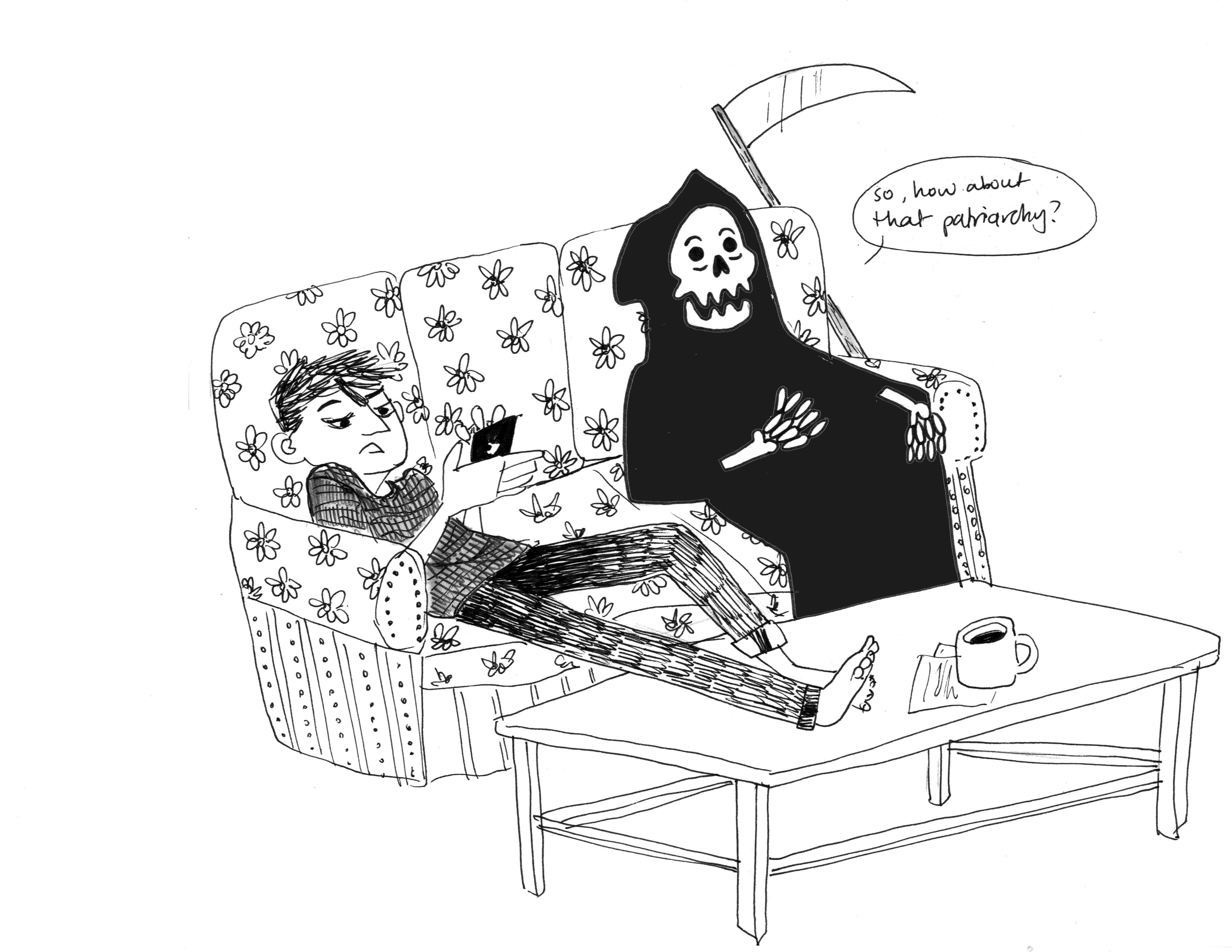
How often do you think about death? I think about it a lot. Let me give you an example. It was the end of 2015, at a big family New Year’s Eve bash: cheap champagne (whose mediocrity did not inhibit my intoxication), little children running around (whose prelapsarian innocence I envied), and a Brobdingnagian television displaying endless variations on the music-industrial complex and minor celebrity (shoot me in the face). At some point during this festive scene — struck, perhaps, by how I used to be one of the children running around — I pulled out my iPhone and tapped out the following thought: “I have boarded a rocket ship of aging that will, after a blur of years, come crashing down into my grave.”1
Happy New Year!
At least that cheerful meditation had me as its only victim.2
This is not always the case. At a party recently, I was talking to someone I’d just met. She was a senior, and a result she felt rather old. I lightheartedly observed that soon she would be graduating, and soon she would be 30, and soon she would be dead. I laughed; she didn’t. Perhaps appropriately, the conversation died soon after. Some studies suggest that recurring anxiety about death makes you funnier. I think they are right, and that the senior who didn’t like my joke just didn’t get it.3
I am funny, and so is death!
I can imagine your tears for my wretched state, reader, as you lament and wonder —
“Victorio, you poor, tortured soul, do you ever stop thinking about death? Do you ever have time to be happy? O, brave, crestfallen youth! O, the thousand natural shocks!”
Well, good news — I do! In fact, I don’t spend all my time thinking about my eventual demise. Sometimes I think about the patriarchy, the political influence of transnational corporations, etc. But, you know, that’s kind of cheating (not to mention futile).4 The trick is to be happy while recognizing that death comes for us all. You’ve got to say: well, I am indeed going to die one day, but what a nice sunset! Or you can say (repeat after me): this broiled meat is unethically sourced and will probably give me cancer,5 but gosh, it sure is delicious. I am going to die, but what is in front of me is enough.*
Sometimes — maybe often — it is enough. In November of last year, before the New Year’s Eve party that now lives in infamy,6 I was walking through Central Park along the rim of its big reservoir.7
I was faintly aware that I would eventually die. I thought of school, of girls,8 of every quotidian thing. I was decidedly myself, which is to say fragile, mortal and pretty annoying. (“DUCKS IN THE WINTER,” I declared through a mass Snapchat of the pond featuring some birds. “CHECKMATE, HOLDEN.”)
I was me. And suddenly I was not. As I walked around the pond, I couldn’t really bring into mind how much reading I had not done, or how many internship applications I had failed to submit, or much of anything else. If “I” am a bundle of perceptions and preoccupations — concepts like “male” and “college student” and “incredibly handsome” and “probably going to Yale Law” — I stopped existing.
There were my footsteps along the path in regular rhythm with an occasional polyrhythm as runners overtook me. There was the grey of the sky. The silver light of the pond. The skyline of the Upper West Side in the distance, flat and drab in the November weather. The reservoir was vast and tranquil save for a distant fountain. My feet kept falling on the pavement. I heard voices as others spoke but I did not process their language. A train rolled across its tracks somewhere to my left but I could not see it; it rumbled like thunder underground.9 Dewy trees to my right. The grey of the sky and the mist at my neck. And the pond. Look at the pond!







